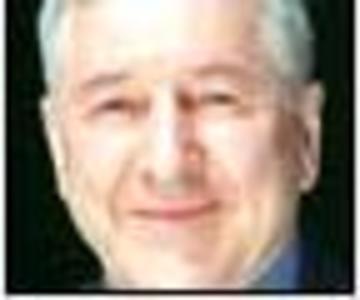Can the Parti Québécois change its spots? Can its newly crowned leader, Pauline Marois, deliver on her promise to "modernize" the party's fundamental tenets, presently consecrated in its revered program?
Ms. Marois was acclaimed last Wednesday as the PQ's seventh leader when no one else submitted a valid candidacy. From the time on May 13 when she announced she would be running, her constant theme has been that the PQ has lost touch with Quebeckers.
"Since 1994, we have witnessed a constant decline in the popularity of our party," she repeated. Among the reasons she cited was that Quebeckers "no longer recognize themselves in certain dogmas that have prevailed in Quebec since the Quiet Revolution, and for which we appointed ourselves as the voice."
Indeed, the PQ was a creation of the Quiet Revolution. The political leaders of the 1960s lost confidence in their society, and resolved to reconstitute it radically in accordance with "modern" understandings. They saw themselves as throwing off "la grande noirceur," the great darkness, and bringing Quebec into the light.
The political class embraced an explanation of what had gone wrong: Quebec had been colonized. This explained the low levels of education of French speakers, their pre-modern educational system, their domination by a reactionary Catholic clergy, their large families, the myths that had committed them collectively to a vocation as farmers and a divine mission to evangelize North America. The theme of the Jean Lesage Liberals in the 1962 election was "libération."
Because English-speaking capital controlled mining, the forestry industry and manufacturing, they would use the state - the Quebec government - as the instrument of emancipation. "The state is one of us, and the one with the biggest muscles," René Lévesque would claim. Sociologists and political scientists identified French Canadians as "an ethnic class" in a Marxian matrix of class struggle.
The colonization model had a corollary: Those who were colonized had a false consciousness and were blinded to their own reality. It was up to those who were emancipated to enlighten their benighted brethren to the servility of their state. That is why Mr. Lévesque agreed to call his party "le Parti Québécois" - the party of Quebec, the only party that carried Quebec's true identity. The Liberals were "the party of the others," often led by a former federal MP (Georges-Émile Lapalme, Jean Lesage) or someone of mixed French-English heritage (such as Daniel Johnson Jr. and John Charest).
These are the "dogmas" that Ms. Marois proposes to attack. "In our wanting to do what we thought was best for the people, we forgot to listen to what they thought would be best for themselves."
Before the 1995 referendum on unilateral secession, Jacques Parizeau had boasted about how "astucieux" - cunning - was the plan he had developed to sell independence to the people. Then, at its convention in 2005, the PQ adopted a radical plan to hold a referendum on secession - without association - and to declare independence immediately after winning the barest majority.
Ms. Marois draws a contrary conclusion from the party's electoral setback. "The people told us that they did not feel ready to reopen now the decisive discussion on Quebec's sovereignty, and they were put off at seeing themselves confined to a sterile debate over the date, the day, the hour of the referendum - in a word, in machinery. But, at the same time, they showed us that they wanted without further delay to see their identity and their values asserted loud and clear."
She addressed the PQ's other foundation stone, social democracy, with more delicacy. She did not repudiate it. That would be suicidal in a party that has as its president Monique Richard, former president of the Quebec teachers' union; that depends on union organizers as election candidates and campaigners, while the Bloc Québécois is led by Gilles Duceppe, a former union organizer.
Instead, she redirected social democracy away from its distrust of private enterprise, its emphasis on state-controlled enterprises and unionized monopolies in the public service.
"We must cease to fear doing things differently," she said in her acceptance speech. "To fear wealth. To fear taking avenues on which we never explored in the past."
The party, which had tanked in the polls, has returned to competitive scores since she announced her return to political life. She enjoys a honeymoon for a brief time. So far, she has spoken in allusive terms. But should she attack directly "the Quebec model," she will learn that she is attacking the very identity of the Parti Québécois.
***
WILLIAM JOHNSON, Author and a former president of Alliance Quebec
Can Pauline Marois change the PQ's spots?
PQ - Pauline : gouverner mais encore ?....

William Johnson53 articles
William Johnson, a Quebec journalist, is a former president of Alliance Quebec





















Laissez un commentaire Votre adresse courriel ne sera pas publiée.
Veuillez vous connecter afin de laisser un commentaire.
Aucun commentaire trouvé